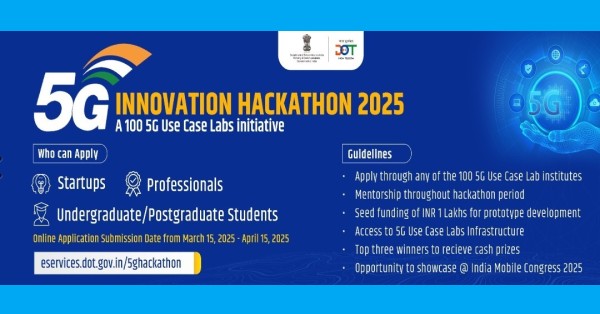Cautious Optimism About AI in Telecom: Why Skepticism Is Healthy
Artificial intelligence (AI) and generative AI (GenAI) are quickly becoming hot topics across various industries, including telecom. Promises of revolutionizing everything from customer service to network optimization sound enticing. Yet, it’s normal—and even essential—to maintain a degree of skepticism. Telecom companies find themselves at the crossroads of excitement and hesitation as they consider how to integrate AI into their operations.
The telecom sector is no stranger to innovation, having embraced disruptive technologies over the decades, from the shift to 5G to the evolution of cloud computing. However, with AI, there’s a sense of both fatigue and anticipation. Despite all the promises, many telecom professionals are still cautious, and for good reason. This skepticism isn’t just about fear of the unknown—it’s a healthy mindset rooted in inquiry and practicality.
A Complex Landscape: Hype vs. Reality in AI for Telecom
Similar to other sectors, the application of AI in telecom brings with it ambitious promises alongside substantial challenges. On one side, AI holds the potential to revolutionize telecom by boosting network efficiency, cutting operational costs, and enhancing customer service. The global AI market is projected to witness significant expansion, potentially reaching $826 billion by 2030, signaling vast growth possibilities for the telecom industry.
However, a more grounded perspective is emerging. Gartner estimates that by 2025, about 30% of generative AI projects will likely be abandoned after the proof-of-concept phase. Moreover, over 80% of AI projects fail, a failure rate that is twice as high as non-AI IT projects. This raises concerns for telecom executives who are used to ensuring dependable, scalable operations and may feel uneasy about the high risk of AI-related failures.
So, where does that leave telecom players? Stuck in a state of “hurry up and wait,” as many leaders cautiously explore AI’s potential while acknowledging the risks and failures that come with early adoption.
Why Skepticism in AI Adoption Is Essential for Telecom
It’s crucial to differentiate between skepticism and outright pessimism. Skepticism involves thoughtful inquiry, a search for evidence, and a desire to ensure that AI implementations are both safe and effective. In contrast, pessimism is rooted in doubt and often anticipates failure. In the fast-moving world of telecom, skepticism allows for a more measured, constructive approach that embraces the complexity of AI without jumping to negative conclusions.
AI isn’t new to telecom, but its applications—especially in areas like predictive maintenance, automated customer service, and network optimization—are evolving rapidly. Telecom operators are already leveraging machine learning to predict network failures, allocate bandwidth more efficiently, and personalize customer interactions. Yet, these benefits come with concerns about AI’s transparency, accuracy, and long-term sustainability. For telecom professionals, asking the right questions can prevent premature adoption of AI solutions that might not be ready for primetime.
Learning from Telecom’s Past: Caution as a Strategy for AI
Telecom’s history is full of examples where new technology was met with initial skepticism, only to later become indispensable. When mobile phones first appeared, there was doubt about their functionality, especially the lack of a physical keyboard. Similarly, the introduction of ATMs in banking faced resistance, as people were initially wary of machines handling their money.
AI will likely follow a similar trajectory in telecom. Early hiccups are expected, but with rigorous testing, thoughtful implementation, and a critical approach, AI can overcome these challenges. Telecom companies have always thrived on innovation, and their cautious approach to AI could ensure its benefits are fully realized without falling victim to the hype.
Tools to Validate AI: Ensuring Performance and Reliability in Telecom
As telecom companies explore AI, they can leverage various tools and evaluation methods to ensure that AI technologies are properly vetted. These tools help telecom operators validate AI performance, reduce risk, and ensure that AI solutions are scalable and sustainable.
- Hallucination Detection: In customer service chatbots, for instance, ensuring that AI responses are factually accurate is critical to avoid misinformation.
- Anomaly Detection Checks: Telecom companies can use AI to monitor network activity and detect unusual patterns, which could signal network failures or security breaches.
- Cross-Validation: Testing AI algorithms on multiple datasets helps ensure consistency in performance, particularly for applications like network optimization.
- Fairness Evaluation: In customer-facing AI applications, ensuring that AI does not perpetuate biases—whether in billing or customer service—ensures fairness across diverse user groups.
- User Experience Testing: AI systems that interact directly with customers need rigorous user experience testing to ensure they are intuitive and effective.
Practical Steps for Telecom Companies to Adopt AI Responsibly
While it’s tempting to be swept up in the excitement of AI’s possibilities, telecom companies need to approach adoption carefully. Here are four practical recommendations for staying grounded in a skeptical but constructive mindset:
- Demand Transparency: Insist on clear, understandable explanations of how AI models work, what data they rely on, and how they produce their outcomes. This level of transparency is crucial in telecom, where reliability is key.
- Foster a People-First Approach: Ensure that AI initiatives aren’t driven solely from the top down. Engage employees from various departments to understand how AI will impact their roles and responsibilities, ensuring the technology is introduced in a way that supports rather than disrupts their work.
- Stay Informed About Regulations: Telecom operates in a highly regulated environment, and AI applications will face increasing scrutiny. Keeping an eye on emerging AI regulations, such as the European Union’s AI Act, is critical to avoid legal complications.
- Test, Validate, Repeat: AI promises should always be tested rigorously. Run independent tests, evaluate AI performance claims, and compare results against traditional methods before rolling out any new AI-driven initiatives.
The Path Forward
Skepticism about AI in telecom isn’t about resisting change—it’s about ensuring that new technologies are integrated responsibly, effectively, and ethically. A cautious yet optimistic approach will allow telecom companies to embrace AI’s potential without falling for the hype. By continuing to ask tough questions, test claims, and consider AI’s impact on employees, customers, and operations, telecom can build a future where AI plays a transformative but measured role.
In this rapidly evolving field, skepticism serves as a vital counterbalance to the enthusiasm that surrounds AI. And for the telecom industry, this healthy skepticism is likely to result in more thoughtful, successful implementations that stand the test of time.






















